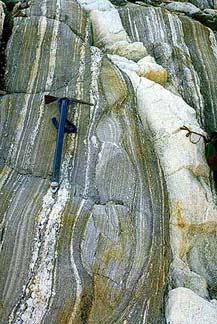Granite Countertops
Granite countertops
Granite countertops strike a perfect balance between function and style. Besides lending your kitchen an elegant, polished look, they are highly resistant to wear, are inhospitable to bacteria and mildew, and can take a lot of impact.
This article will serve as a beginner’s guide to granite countertops. Read on to know what to look for when choosing a granite countertop, what to consider when having one installed, and whether a granite countertop is right for your home or business.
 What is granite?
What is granite?
Granite is an igneous rock made up of silica, quartz and feldspar. It is formed from rapidly cooling volcanic magma. Magma, the molten rock on which the Earth’s continents float, is actually composed of different molten elements. When underground, magma is forced to withstand extreme pressures and temperature differentials. If a magma river composed mostly of silicate bases and is moved from a high-temperature area to a cooler one, it loses heat quickly and hardens into granite. All the rocks, minerals, and ores melted in the magma flow cool at different temperatures, separating into their base elements and resulting in the intricate texture and pattern that granite is known for.
Why use granite?
Because it is a nonporous, highly compact material, granite allows no room for water to seep in. The dryness creates a hostile environment for bacteria, mold, and mildew, which require a moist environment to thrive. This makes granite countertops an ideal fixture material for bathrooms and kitchens. There are even food-grade granite surfaces, designed specifically for kitchens. They often double as built-in chopping boards, since granite is resistant to scratches and breaks.
Granite is exposed to extremely high pressures and temperatures during formation, making it highly resistant to heat. You can place a pot fresh out of the fire onto a granite countertop without melting or deforming the surface. Also, because of its rocky composition, granite is very compact and durable. A granite countertop will last as long as your home does, maybe longer.
Tips on granite
Granite comes in many different colors, but their basic mineralogy should be the same across the gradients. Choose a granite countertop that matches your home’s fixtures. If your home is generally a neutral color, this should not be a problem.
Usually, granite countertops have to be prepared and installed by a professional. Choose your dealer carefully. With an experienced and skilled builder, your countertop will last and keep its luster for several years. Look up your dealer’s qualifications before sealing the deal. Manufacturers and builders generally need state licenses in order to work.
While specific requirements and regulations on these vary from state to state, all states require builder certification. Find out about your builder’s certification before requesting a job order. Finally, remember that your job order may require rearranging your kitchen’s contents temporarily.
While granite countertops are relatively simple to install, the installation process still involves moving large pieces of rock and stone around, and accidents from this are common. Find out about your fabricator’s insurance and safety policies, to keep your valued items safe.